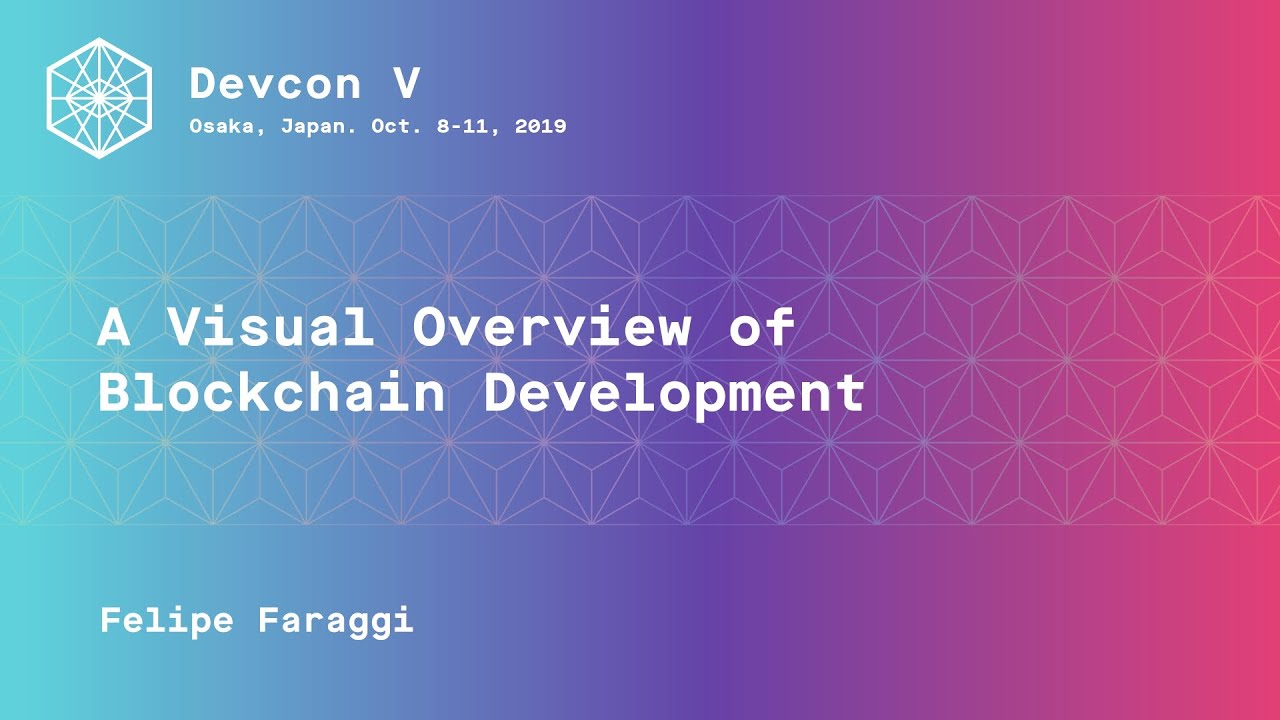Microsoft's Influence on the Growth and Advancement of Ethereum's NFT Community
Blur: NFT | Blur: NFT login | Blur: NFT connect | WalletConnect | Traders | What Is Blur Crypto

Blur: NFT | Blur: NFT login | Blur: NFT connect | WalletConnect | Traders | What Is Blur Crypto
Microsoft, a renowned tech giant, has been making significant advancements in the world of blockchain technology, particularly in relation to Ethereum's NFT ecosystem. NFTs, or non-fungible tokens, have revolutionized the way digital assets are created, bought, sold, and traded. They have provided unique opportunities for artists, creators, and collectors alike, and Microsoft has played a crucial role in driving this evolution.
One of the key contributions of Microsoft to the Ethereum NFT ecosystem is the Azure Blockchain Service. This platform enables developers to easily build, deploy, and manage blockchain applications, including NFTs, on the robust Ethereum network. With the availability of such a user-friendly service, more developers have been empowered to explore the possibilities of NFTs and contribute to the ecosystem.
Furthermore, Microsoft's support for Ethereum's NFT ecosystem extends beyond just providing a development platform. They have also collaborated with various blockchain startups and projects to drive innovation and adoption. For instance, Microsoft Azure has partnered with Enjin, a blockchain gaming platform, to create a scalable and user-friendly solution for integrating NFTs into games. This partnership has opened up new avenues for gamers and game developers to incorporate digital asset ownership and trading within their virtual worlds.
Another notable initiative by Microsoft is the introduction of the "Azure Heroes" program, which aims to recognize and reward individual contributors to the blockchain community. Through this program, Microsoft has created a collection of NFTs that represent different categories of community contributions. These NFTs can be earned by individuals who actively contribute to the development and growth of the blockchain ecosystem, thereby incentivizing participation and fostering a sense of community.
In conclusion, Microsoft's impact on the evolution and expansion of Ethereum's NFT ecosystem cannot be understated. Their provision of the Azure Blockchain Service, collaborations with blockchain startups, and initiatives like the Azure Heroes program have all contributed to the growth and adoption of NFTs. As Microsoft continues to explore and invest in blockchain technology, we can expect further advancements and innovations that will shape the future of digital asset ownership and trading.
The Impact of Microsoft on Ethereum's NFT Ecosystem

Microsoft, as one of the world's leading technology companies, has made significant contributions to the evolution and expansion of Ethereum's NFT ecosystem. Through its various initiatives and partnerships, Microsoft has played a crucial role in the growth and adoption of non-fungible tokens (NFTs) on the Ethereum blockchain.
One of the ways Microsoft has impacted Ethereum's NFT ecosystem is through its Azure Blockchain service, which allows developers to easily build, deploy, and manage NFT applications on the Ethereum blockchain. By providing infrastructure and tools for NFT development, Microsoft has lowered the entry barrier for developers and facilitated the creation of innovative NFT projects.
In addition to its Azure Blockchain service, Microsoft has also collaborated with various NFT platforms and startups, further boosting the growth of Ethereum's NFT ecosystem. For example, Microsoft has partnered with Enjin, a leading NFT platform, to enable developers to create and manage NFTs using Azure's blockchain tools. This partnership has not only helped Enjin gain more visibility and credibility but has also attracted more developers to build NFT applications on the Ethereum blockchain.
Furthermore, Microsoft's support for interoperability has had a positive impact on Ethereum's NFT ecosystem. Through its partnerships with blockchain projects like Chainlink and Polkadot, Microsoft has contributed to the development of cross-chain NFT solutions. This has allowed NFTs created on the Ethereum blockchain to be used and interacted with on other blockchains, opening up new possibilities for NFT integration and expansion.
Moreover, Microsoft has actively encouraged the exploration and experimentation of NFTs through its research and development initiatives. The company has conducted studies and published resources on the potential applications and impact of NFTs, which have helped raise awareness and understanding of NFT technology within the broader technology community.
In conclusion, Microsoft's involvement in Ethereum's NFT ecosystem has been instrumental in its evolution and expansion. Through its Azure Blockchain service, partnerships with NFT platforms, support for interoperability, and research initiatives, Microsoft has contributed to the growth and adoption of NFTs on the Ethereum blockchain, paving the way for a vibrant and thriving NFT ecosystem.
The Evolution of Ethereum's NFT Ecosystem
Ethereum's NFT ecosystem has experienced significant growth and development since its inception. One of the key factors that has contributed to this evolution is Microsoft's involvement and support in the space.
Introduction of ERC-721 Standard
In 2017, Ethereum introduced the ERC-721 standard, which allowed for the creation and trading of unique, non-fungible tokens on the blockchain. This standard revolutionized the NFT space by enabling the tokenization of digital assets such as art, music, and collectibles.
Microsoft played a crucial role in advocating for the adoption and implementation of the ERC-721 standard. Their recognition and support of NFTs helped to validate the concept and bring it mainstream attention.
Partnership with Azure

In 2018, Microsoft partnered with Azure to provide a platform for developers and creators to easily build, deploy, and manage NFT applications on the Ethereum network. This collaboration further solidified Ethereum's position as the leading blockchain platform for NFTs.
Through Azure, developers gained access to various tools and resources that made it easier to integrate NFT functionality into their projects. This partnership significantly contributed to the expansion of Ethereum's NFT ecosystem by attracting more developers and driving innovation in the space.
Additionally, Microsoft's involvement helped to increase awareness and adoption of NFTs among businesses and enterprises, paving the way for wider acceptance of digital assets in traditional industries.
NFT Marketplaces and Applications
As the Ethereum NFT ecosystem continued to grow, Microsoft's support extended to the development of NFT marketplaces and applications.
Microsoft collaborated with various blockchain startups to create user-friendly platforms for buying, selling, and trading NFTs. These marketplaces, such as OpenSea and Rarible, provide a seamless and intuitive experience for users to discover and transact with digital assets.
Furthermore, Microsoft's Azure marketplace itself supports the deployment of NFT applications, allowing developers to easily showcase and distribute their NFT-based projects.
Overall, Microsoft's involvement in the evolution of Ethereum's NFT ecosystem has played a significant role in driving adoption, innovation, and legitimacy in the space. Their support has helped to establish NFTs as a valuable asset class and has paved the way for the future of digital ownership and decentralized finance.
Microsoft's Involvement in Blockchain Technology
Blockchain technology has gained significant attention in recent years, and Microsoft has been at the forefront of its adoption and development. The tech giant has played a pivotal role in the evolution and expansion of the Ethereum blockchain and its NFT ecosystem.
Microsoft has embraced blockchain technology as a means to revolutionize various industries, including finance, supply chain, and identity management. The company has actively contributed to the open-source community, supporting projects like Ethereum and Hyperledger Fabric.
One of Microsoft's most notable contributions to the blockchain space is the development of Azure Blockchain Service, a cloud-based platform that enables developers to create, deploy, and manage blockchain networks. This platform significantly simplifies the process of building decentralized applications and provides robust infrastructure for blockchain projects.
In 2015, Microsoft became the first major technology company to embrace Ethereum, allowing developers to build and deploy smart contracts on its Azure platform. This integration enabled a wide range of use cases, including tokenization, decentralized finance, and NFTs.
Furthermore, Microsoft has actively partnered with blockchain startups and organizations to promote innovation in the space. For instance, the company collaborated with ConsenSys, a leading blockchain software company, to allow enterprises to build on the Ethereum blockchain using Azure Blockchain Service.
1. Development of Azure Blockchain Service
2. Integration of Ethereum on Azure platform
3. Collaboration with ConsenSys for enterprise adoption
Microsoft's involvement in blockchain technology has brought significant legitimacy and credibility to the space. By providing developers with the tools and infrastructure needed to build and deploy blockchain solutions, Microsoft has played a vital role in driving the adoption of this revolutionary technology.
Looking ahead, it is clear that Microsoft's commitment to blockchain technology will continue to shape the evolution and expansion of the NFT ecosystem and other blockchain applications. As the industry matures, we can expect Microsoft to remain at the forefront, driving innovation and fostering widespread adoption.
Microsoft's Support for Ethereum

Microsoft has been a key player in the evolution and expansion of Ethereum's NFT ecosystem. The tech giant has shown its commitment to the blockchain space by actively supporting Ethereum and its related technologies.
One of the ways Microsoft has shown its support is by integrating Ethereum into its Azure cloud computing platform. Azure provides developers with a range of tools and services to build, deploy, and manage blockchain applications. This integration has made it easier for developers to create NFT projects on the Ethereum network, fostering innovation and growth in the NFT ecosystem.
In addition to its support for Ethereum on Azure, Microsoft has also made investments in the NFT space. The company has partnered with various NFT marketplaces and platforms, facilitating the buying, selling, and trading of digital assets. These partnerships have helped to bring more visibility and accessibility to the NFT ecosystem, making it easier for artists and creators to monetize their work.
Furthermore, Microsoft has been actively involved in promoting education and awareness around NFTs and blockchain technology. The company has organized workshops, webinars, and conferences to help developers and businesses understand the potential of NFTs and how they can leverage them in their respective industries.
Conclusion

Microsoft's support for Ethereum has played a crucial role in the evolution and expansion of the NFT ecosystem. By integrating Ethereum into its cloud computing platform, partnering with NFT marketplaces, and promoting education and awareness, Microsoft has helped to drive innovation and adoption of NFTs. As the NFT space continues to grow, Microsoft's ongoing support will be instrumental in shaping its future.
COMMENT SE CONNECTER À UN COMPTE BLUR.IO ?
Microsoft's Azure Blockchain Services
One of the major players that has greatly contributed to the evolution and expansion of Ethereum's NFT ecosystem is Microsoft. The tech giant has played a significant role in supporting the development and adoption of blockchain technology, including Ethereum.
Microsoft offers a variety of blockchain-related services, including Azure Blockchain Services. Azure Blockchain Services allows developers to easily build, deploy, and manage blockchain networks on the Azure platform. This service provides a scalable and secure infrastructure for blockchain applications.
One key area where Microsoft's Azure Blockchain Services has made an impact on the Ethereum NFT ecosystem is in providing a reliable and efficient infrastructure for NFT marketplaces and platforms. By leveraging Azure's capabilities, NFT marketplaces can ensure high-performance and secure transactions, as well as seamless integration with other Azure services.
Additionally, Azure Blockchain Services offers built-in integration with popular blockchain networks, including Ethereum. This makes it easier for developers to create and deploy smart contracts on Ethereum, which are the backbone of NFTs. The integration with Ethereum also enables seamless interoperability with other Ethereum-based applications and protocols.
In recent years, Microsoft has been actively working with various organizations and projects in the blockchain space to foster innovation and advance the adoption of blockchain technology. Through its partnerships and collaborations, Microsoft has helped to develop and promote standards and best practices that benefit the entire blockchain ecosystem, including the Ethereum NFT ecosystem.
Overall, Microsoft's Azure Blockchain Services have played a crucial role in the evolution and expansion of Ethereum's NFT ecosystem. By providing developers with a robust and scalable infrastructure, as well as integration with Ethereum and other blockchain networks, Microsoft has contributed to the growth and success of NFT marketplaces and platforms.
For more information on Microsoft's Azure Blockchain Services, you can visit JAK ZALOGOWAĆ SIĘ DO KONTA BLUR.IO.
The Integration of NFTs into Microsoft's Ecosystem

Microsoft has been actively exploring the potential of non-fungible tokens (NFTs) and their integration into its existing ecosystem. As one of the leading tech companies in the world, Microsoft's involvement in the NFT space could significantly influence the evolution and expansion of Ethereum's NFT ecosystem.
Azure Blockchain
Microsoft's Azure Blockchain offers a comprehensive set of tools and services for developers to build, deploy, and manage blockchain applications. The integration of NFTs into Azure Blockchain could provide a secure and scalable infrastructure for the creation, distribution, and trading of NFTs.
Identity and Authenticity
Microsoft's Azure Active Directory already serves as a key identity management system. With the addition of NFTs, Microsoft could potentially offer a secure and decentralized solution for verifying the authenticity of digital assets and verifying the ownership of NFTs.
Marketplaces and Collectibles
Microsoft has experience in operating digital marketplaces, such as the Microsoft Store and Xbox Game Store. With the integration of NFTs, Microsoft could potentially create a dedicated marketplace for the buying, selling, and trading of NFTs, including digital collectibles and in-game assets.
Development Tools and Support
Microsoft provides developers with a wide range of tools and support for building applications. With the integration of NFTs, Microsoft could offer development tools, libraries, and frameworks specifically designed for creating, managing, and interacting with NFTs on the Ethereum blockchain.
Education and Adoption
Microsoft has a strong focus on education and has been offering various resources and programs to promote the adoption of emerging technologies. With NFTs gaining popularity, Microsoft's involvement could help educate developers, businesses, and users on the potential applications and benefits of NFTs.
In conclusion, Microsoft's integration of NFTs into its ecosystem has the potential to significantly impact the evolution and expansion of Ethereum's NFT ecosystem. Through its Azure Blockchain platform, identity management systems, marketplaces, development tools, and education initiatives, Microsoft could play a key role in driving the mainstream adoption and utilization of NFTs.
Ethereum's NFT Standards Supported by Microsoft
Microsoft, a globally recognized technology company, has played a significant role in the evolution and expansion of Ethereum's NFT ecosystem. Through its support and collaboration, Microsoft has helped to establish and foster the adoption of Ethereum's NFT standards.
With its wide range of tools and services, including the Azure blockchain development kit, Microsoft has provided developers with the necessary resources to create, deploy, and manage NFTs on the Ethereum network. This support has helped to streamline the creation and implementation of NFT projects, making it easier for artists, collectors, and enthusiasts to participate in the growing market.
Microsoft's commitment to Ethereum's NFT ecosystem is further exemplified by their collaboration with Blur: NFT, a leading platform for buying, selling, and trading NFTs. By partnering with Blur: NFT, Microsoft has demonstrated their dedication to advancing the innovation and accessibility of NFT technology.
Through this collaboration, artists and creators can leverage the power of Azure's tools and infrastructure to bring their unique digital assets to the market. This partnership not only strengthens Ethereum's NFT ecosystem but also provides artists with greater exposure and opportunities to monetize their creations.
Furthermore, Microsoft's endorsement of Ethereum's NFT standards has helped to establish trust and credibility within the industry. The inclusion of Microsoft's support gives developers and users confidence in the reliability and compatibility of Ethereum's NFT ecosystem, further driving its growth and adoption.
In conclusion, Microsoft's support and collaboration have been instrumental in the evolution and expansion of Ethereum's NFT ecosystem. By providing developers with the necessary tools and resources, as well as partnering with platforms like Blur: NFT, Microsoft has contributed to the accessibility, innovation, and adoption of NFT technology on the Ethereum network.
Explore the possibilities of Ethereum's NFT ecosystem with Blur: NFT. Blur: NFT offers a seamless marketplace for buying, selling, and trading unique digital assets.
Microsoft's Role in NFT Marketplaces

As one of the biggest technology companies in the world, Microsoft has played a significant role in the evolution and expansion of NFT marketplaces. NFTs, or non-fungible tokens, have gained massive popularity in recent years as a way to tokenize and buy/sell digital assets such as artwork, collectibles, and virtual real estate.
Microsoft has been actively involved in the development of blockchain technology, which is the underlying technology behind NFTs. Through its Azure Blockchain Service, Microsoft has provided developers and businesses with the tools and infrastructure needed to build, deploy, and manage blockchain-based solutions, including NFT marketplaces.
One of the ways Microsoft has contributed to the growth of NFT marketplaces is by partnering with various blockchain projects and platforms. For example, Microsoft has collaborated with Enjin, a blockchain gaming platform, to create a toolkit that allows game developers to easily integrate NFTs into their games. This partnership has opened up new possibilities for gamers to buy, trade, and own unique in-game items as NFTs.
Furthermore, Microsoft has also supported the development of decentralized NFT marketplaces by providing guidance and resources to the crypto community. The company has organized hackathons and workshops focused on blockchain and NFT development, fostering innovation and collaboration in the space.
In addition, Microsoft's cloud computing platform, Azure, has been utilized by NFT marketplaces to ensure scalability and reliability. By leveraging Azure's infrastructure, NFT marketplaces can handle the high demand and traffic associated with the buying and selling of digital assets.
Overall, Microsoft's involvement in the NFT ecosystem has been instrumental in driving the adoption and mainstream acceptance of NFTs. Through its collaboration with blockchain projects, support for developers, and provision of cloud infrastructure, Microsoft has helped shape the NFT market and create new opportunities for artists, creators, and collectors across the globe.
Microsoft's Contributions to NFT Interoperability
As the non-fungible token (NFT) ecosystem continues to expand, interoperability has emerged as a critical factor in ensuring the seamless transfer and exchange of digital assets across various platforms and marketplaces. Microsoft, a technology giant known for its contributions to the software industry, has made significant efforts to support and promote NFT interoperability.
Collaboration with Ethereum

Microsoft has been actively involved in collaborating with Ethereum, the leading blockchain platform for NFTs, to enhance interoperability in the space. One notable project is Microsoft's collaboration with the Ethereum community to develop the Ethereum Name Service (ENS) integration, allowing users to associate human-readable names with their Ethereum wallet addresses. This integration simplifies the process of sending and receiving NFTs, eliminating the need to remember complex wallet addresses.
Blockchain Interoperability Protocol
In addition to its collaboration with Ethereum, Microsoft has been working on developing a blockchain interoperability protocol called Ion. Ion is designed to allow secure and scalable interconnectivity between different blockchains, including those supporting NFTs. By enabling interoperability, Ion aims to streamline the transfer and exchange of NFTs across multiple blockchain networks, making it easier for users to access a wider range of assets and marketplaces.
Microsoft's commitment to NFT interoperability extends beyond its own initiatives. The company actively supports open standards and initiatives that promote interoperability across the entire NFT ecosystem.
By focusing on interoperability, Microsoft is driving the adoption and growth of the NFT ecosystem, making it more accessible and user-friendly for both creators and collectors.
Microsoft's Impact on NFT Tokenization

Non-fungible tokens (NFTs) have gained immense popularity in recent years, revolutionizing the way we perceive and value digital assets. One company that has had a significant impact on NFT tokenization is Microsoft. With its vast resources and technological expertise, Microsoft has played a crucial role in the evolution and expansion of the NFT ecosystem, particularly within the Ethereum network.
Partnerships and Platforms
Microsoft's commitment to fostering innovation and entrepreneurship has led to numerous partnerships and collaborations within the NFT space. One notable partnership is Microsoft's collaboration with OpenSea, the largest NFT marketplace on the Ethereum network. By integrating OpenSea's marketplace into its Azure cloud platform, Microsoft has provided NFT creators and collectors with a seamless and secure environment to tokenize, buy, and sell their digital assets.
In addition to its partnership with OpenSea, Microsoft has also developed its NFT platform called Azure Artifacts. Azure Artifacts enables creators to securely store and manage their NFTs using Microsoft's robust cloud infrastructure. This platform has not only simplified the tokenization process but also facilitated the widespread adoption of NFTs across various industries.
Innovation and Interoperability

Microsoft's commitment to innovation extends beyond partnerships and platforms. The company consistently explores new ways to enhance NFT tokenization and improve interoperability within the ecosystem. One notable example is the Microsoft Authenticator app, which allows users to securely store and manage their NFTs. By leveraging blockchain technology, Microsoft Authenticator ensures the ownership and authenticity of digital assets, a crucial aspect for the NFT market.
Furthermore, Microsoft has actively supported the development of Ethereum's infrastructure, contributing to the growth and scalability of the network. This commitment includes collaborating with the Ethereum Foundation to build an open-source consortium network called Baseline Protocol. This protocol aims to enable secure and private business processes using Ethereum's blockchain technology, further expanding the potential use cases for NFT tokenization.
In conclusion, Microsoft's impact on NFT tokenization cannot be underestimated. Through partnerships, platforms, and technological innovations, Microsoft has provided the necessary tools and support for the widespread adoption of NFTs. With its continued commitment to the development of blockchain technology, Microsoft is likely to shape the future of NFTs and contribute to their evolution within the digital asset landscape.
Microsoft's Collaboration with NFT Artists and Collectors
Microsoft's collaboration with NFT artists and collectors has played a significant role in the evolution and expansion of Ethereum's NFT ecosystem. With its vast resources and technological expertise, Microsoft has been able to provide artists and collectors with valuable tools and platforms to create and trade NFTs.
1. The Azure Blockchain Development Kit
One of the notable contributions of Microsoft to the NFT ecosystem is the Azure Blockchain Development Kit. This software development kit offers a range of tools and services for developing blockchain applications, including NFTs. By providing developers with a comprehensive toolkit, Microsoft has made it easier for artists and collectors to create and deploy their NFT projects on the Ethereum network.
2. Collaboration with NFT Platforms
Microsoft has also partnered with leading NFT platforms to support the growth of the ecosystem. For example, Microsoft collaborated with OpenSea, one of the largest NFT marketplaces, to enable seamless integration with Azure cloud services. This partnership allows NFT artists and collectors to leverage Azure's scalability and security features while trading their digital assets on OpenSea.
In addition to OpenSea, Microsoft has worked with other NFT platforms such as Rarible and SuperRare to enhance the user experience and streamline the process of minting and trading NFTs. By collaborating with these platforms, Microsoft has helped to attract more artists and collectors to the NFT space.
3. Supporting NFT Artists and Collectors
Microsoft has shown a commitment to supporting NFT artists and collectors through various initiatives. For instance, the company has organized hackathons and workshops to educate and empower artists on the benefits of NFTs and how to navigate the ecosystem effectively.
In addition, Microsoft has provided grants and funding opportunities for NFT artists and collectors through its Microsoft for Startups program. This financial support has allowed artists to focus on their creative endeavors and explore new possibilities in the NFT space.
4. NFT Marketplace Integration
Recognizing the growing popularity of NFTs, Microsoft has integrated NFT marketplaces into its products. For example, the company has made it possible for users to display their NFT collections on their Microsoft Teams profiles, allowing them to showcase their digital artworks and connect with other enthusiasts within their professional networks.
This integration not only increases the visibility of NFT artists and collectors but also encourages a wider adoption of NFTs among professionals in various industries.
In conclusion, Microsoft's collaboration with NFT artists and collectors has been instrumental in the evolution and expansion of Ethereum's NFT ecosystem. Through its technological advancements, partnerships with NFT platforms, support for artists and collectors, and marketplace integration, Microsoft has demonstrated its commitment to fostering innovation and growth in the NFT space.
The Future of Ethereum's NFT Ecosystem with Microsoft
As the NFT (non-fungible token) market continues to explode in popularity, the role of major technology companies like Microsoft cannot be ignored. Microsoft's impact on the evolution and expansion of Ethereum's NFT ecosystem has been significant, and the future holds even greater potential.
Building Infrastructure and Tools
Microsoft has played a crucial role in building the necessary infrastructure and tools to support the growth of Ethereum's NFT ecosystem. Through platforms like Azure Blockchain Service, Microsoft has provided developers with the resources they need to create and deploy NFT projects on Ethereum.
This support from a major technology player has given developers more confidence in utilizing Ethereum for NFT development, leading to an influx of innovative projects and increased adoption of the technology.
Enhancing Security and Scalability

One of the key challenges facing Ethereum's NFT ecosystem is scalability. As more and more users participate in NFT transactions and platforms, Ethereum's network can experience congestion and slow transaction times. However, Microsoft's involvement has brought about advancements in scalability solutions.
Through collaborations with Ethereum's development team and initiatives like Project Bletchley, Microsoft has been exploring ways to enhance Ethereum's scalability and security. This includes the implementation of solutions such as sidechains and state channels, which can help alleviate congestion and improve transaction speeds.
By addressing these scalability issues, Microsoft is paving the way for a future where Ethereum's NFT ecosystem can support a much larger user base and handle a higher volume of transactions without compromising on security.
In conclusion, Microsoft's impact on Ethereum's NFT ecosystem cannot be understated. Through infrastructure-building, tool development, and scalability improvements, Microsoft has laid the foundation for a thriving future for Ethereum's NFT market. As technology continues to advance and adoption of NFTs grows, the partnership between Microsoft and Ethereum will likely become even more crucial in shaping the future of this emerging market.
What is the impact of Microsoft on the evolution and expansion of Ethereum's NFT ecosystem?
Microsoft's impact on the evolution and expansion of Ethereum's NFT ecosystem has been significant. The company has shown a great interest in blockchain technology and has partnered with Ethereum to develop various tools and platforms that support NFTs. Microsoft's collaboration has brought more legitimacy and credibility to the Ethereum blockchain, attracting more developers and users to build and experiment with NFTs.
How has Microsoft supported the expansion of Ethereum's NFT ecosystem?
Microsoft has supported the expansion of Ethereum's NFT ecosystem in several ways. Firstly, they have developed tools and frameworks that make it easier for developers to create and deploy NFTs on the Ethereum blockchain. Secondly, they have integrated Ethereum-based NFT support into their flagship products like Azure and Xbox, making it more accessible to a wider audience. Lastly, Microsoft has collaborated with various NFT projects and organizations to promote the adoption of NFTs and educate the community about their potential.
What are some specific projects or initiatives that Microsoft has undertaken to contribute to Ethereum's NFT ecosystem?
Microsoft has undertaken several projects and initiatives to contribute to Ethereum's NFT ecosystem. They have developed the Azure Blockchain Workbench, which provides a preconfigured network and infrastructure for creating and managing NFTs on the Ethereum blockchain. They have also built the Azure Heroes program, which uses NFTs to recognize and reward community members for their contributions to the development of blockchain and open-source projects. Additionally, Microsoft has partnered with OpenSea and Flow to explore new opportunities for NFTs in gaming and digital collectibles.
Why is Microsoft's involvement in Ethereum's NFT ecosystem important?
Microsoft's involvement in Ethereum's NFT ecosystem is important for several reasons. Firstly, as a major technology company, Microsoft brings credibility and legitimacy to the world of NFTs, which helps to attract more mainstream adoption. Secondly, Microsoft's expertise and resources enable them to develop tools and platforms that make it easier for developers and users to engage with NFTs. Lastly, their collaborations with other industry leaders and NFT projects help to drive innovation and explore new use cases for this technology.
What are some potential future developments or collaborations between Microsoft and Ethereum's NFT ecosystem?
There are several potential future developments and collaborations between Microsoft and Ethereum's NFT ecosystem. One possibility is the further integration of NFT support into Microsoft's products and services, such as Office 365 or LinkedIn, which could enable new ways for professionals to showcase their work and achievements. Additionally, Microsoft could continue to partner with other NFT platforms and projects to explore new use cases and expand the reach of NFTs beyond art and collectibles. Furthermore, Microsoft could invest in research and development to address scalability and sustainability challenges in the NFT space.
Blur: NFT | Blur: NFT login | Blur: NFT connect | WalletConnect | Traders | What Is Blur Crypto
2022-2024 @ The impact of microsoft on the evolution and expansion of ethereums nft ecosystem